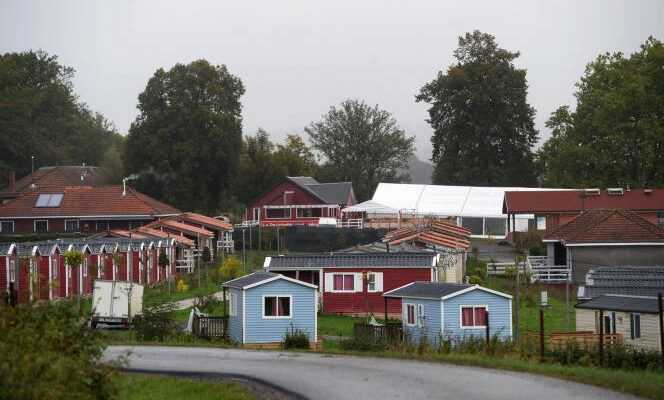His name was Valentin Gomes. He was 23 years old. On October 5, the body of this future engineer, a fifth year student at Polytech Lille, was found in Signy-l’Abbaye (Ardennes). The young Breton had disappeared during the night from Saturday to the previous Sunday while he was participating in a weekend of cohesion in an Ardennes campsite with nearly 400 other students.
Autopsy “Has not made it possible to determine at this stage the cause of death or to find an objective trace of the voluntary intervention of a third party having caused an injury”, said the prosecutor of Charleville-Mézières. Witnesses told the local press that he had consumed a lot of alcohol, that“We had refused to serve it again” and that he was then “Entered a sort of retreat bungalow, planned by the organizers so that all the students can rest there”. The presence on site of Civil Security and a Red Cross security service did not prevent the tragedy.
Humiliating practices
The track of the assault was quickly ruled out, but the massive alcoholism practiced during these evenings is at the heart of the investigation. As for Simon Guermonprez. He was 19. On July 9, the body of this second-year medical student was found on the A27 motorway. The young Northerner was returning from an integration evening organized by students at the Citadel of Lille then in an apartment, where doses of alcohol were administered to him.
” Since 2013 [date à laquelle la fac de médecine de Lille a interdit les soirées d’intégration], everything went underground. And the phenomenon has been accentuated since the lifting of confinement. »Dominique Lacroix, Dean of the Faculty of Health and Sport Sciences
On his way home, he walked a few hundred meters, to the bridge that crosses over the Lille-Brussels motorway. Simon then allegedly took a selfie with his phone, which he dropped. It was while trying to retrieve it that he was hit by a truck. Since this tragic accident, his father has been fighting against the practices used during these integration evenings. According to Daniel Guermonprez, “Simon didn’t usually drink alcohol, he didn’t like it.” However, during this evening, the young student would have drunk “About eight large syringe doses, poured directly into the mouth in less than two hours”, indicates his father. His petition “Stop hazing”, launched on the Internet, has already collected more than 33,000 signatures.
Banned since 1998, hazing is punishable by six months’ imprisonment and a fine of 7,500 euros. Universities and student associations also signed a charter in 2018 with the Minister of Higher Education, Frédérique Vidal, to oversee the organization of festive events. “But what we thought was extinct is still there, laments Professor Dominique Lacroix, dean of the Faculty of Medicine and Sports at the Faculty of Medicine of Lille. And the bottom line is alcohol. “
You have 47.53% of this article to read. The rest is for subscribers only.
